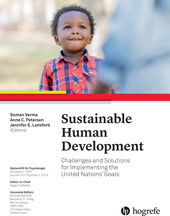References
(2019). Well-being of Turkish and Moroccan youth in the Netherlands: Parental control, parental solicitation, and acculturation to the Dutch culture. Zeitschrift für Psychologie, 227, 144–148. https://doi.org/10.1027/2151-2604/a000367
(2019). Adaptation and application of the Measuring Early Learning Quality and Outcomes (MELQO) Framework to early childhood education settings in Colombia: Implications for national policy and the Sustainable Development Goals. Zeitschrift für Psychologie, 227, 105–112. https://doi.org/10.1027/2151-2604/a000361
(2019). Illuminating the use of the specificity principle to go inside the black box of programs: The sample case of an El Salvador positive youth development program. Zeitschrift für Psychologie, 227, 121–128. https://doi.org/10.1027/2151-2604/a000363
United Nations . (2015). Transforming our world: The 2030 agenda for sustainable development. Retrieved from https://sustainabledevelopment.un.org/post2015/transformingourworld/publication



